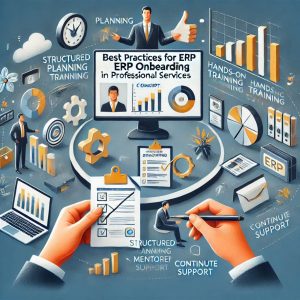In today’s complex regulatory landscape, Enterprise Resource Planning (ERP) systems have become the backbone of compliance strategies across industries. This guide explores how modern ERP solutions transform regulatory challenges into operational advantages.
Why ERP Compliance Matters in 2024
Businesses face increasingly stringent regulatory requirements. An effective ERP system isn’t just a technological tool—it’s a critical shield protecting your organization from potential legal and financial risks.
Key Compliance Benefits of ERP Systems
1. Data Privacy Protection
The General Data Protection Regulation (GDPR) has revolutionized how companies handle personal data. ERP systems offer robust features to ensure compliance:
- Centralized Data Security: Consolidate sensitive information with advanced encryption and access controls
- Automated Compliance Reporting: Generate precise regulatory reports with minimal manual intervention
- Continuous Monitoring: Real-time analytics to proactively identify and address potential compliance gaps
2. Streamlined Financial Reporting
For public companies, maintaining impeccable financial records is non-negotiable. ERP solutions provide:
- Consistent Accounting Principles: Automate financial workflows to eliminate human error
- Comprehensive Audit Trails: Track every financial transaction with complete transparency
- Integrated Reporting: Consolidate financial data across departments for accurate, timely reporting
3. Protecting Client Confidentiality
In sensitive sectors like healthcare and finance, client data protection is paramount. ERP systems offer:
- Advanced Data Encryption: Secure client information with state-of-the-art protection mechanisms
- Strict Access Controls: Ensure only authorized personnel can access confidential data
- Vendor Compliance Management: Track and enforce regulatory standards across your entire supply chain
Industry-Specific Compliance Solutions
Healthcare Sector
- HIPAA compliance through robust data security
- Automated patient record management
- Precise care quality metric reporting
Financial Services
- Sarbanes-Oxley Act (SOX) documentation automation
- Detailed transaction record maintenance
- Enhanced audit preparedness
Manufacturing
- Supply chain traceability
- Quality standard enforcement
- Safety regulation compliance tracking
Choosing the Right ERP Compliance Strategy
When selecting an ERP system, consider:
- Industry-specific regulatory requirements
- Scalability of compliance features
- Integration capabilities
- Real-time reporting and monitoring tools
Conclusion: Compliance as a Competitive Advantage
Modern ERP systems do more than ensure regulatory adherence—they transform compliance from a burden into a strategic business asset. By centralizing data, automating complex processes, and providing robust security measures, ERPs help organizations navigate regulatory challenges with confidence.
Ready to Optimize Your Compliance Strategy?
Invest in an ERP solution that goes beyond basic requirements. Protect your business, streamline operations, and turn regulatory compliance into a competitive edge.




